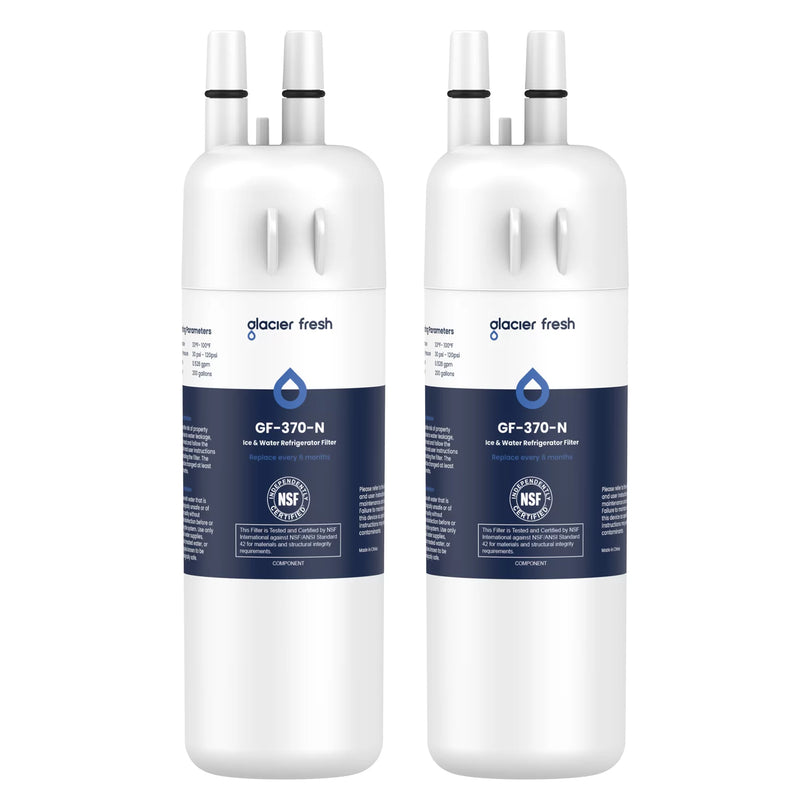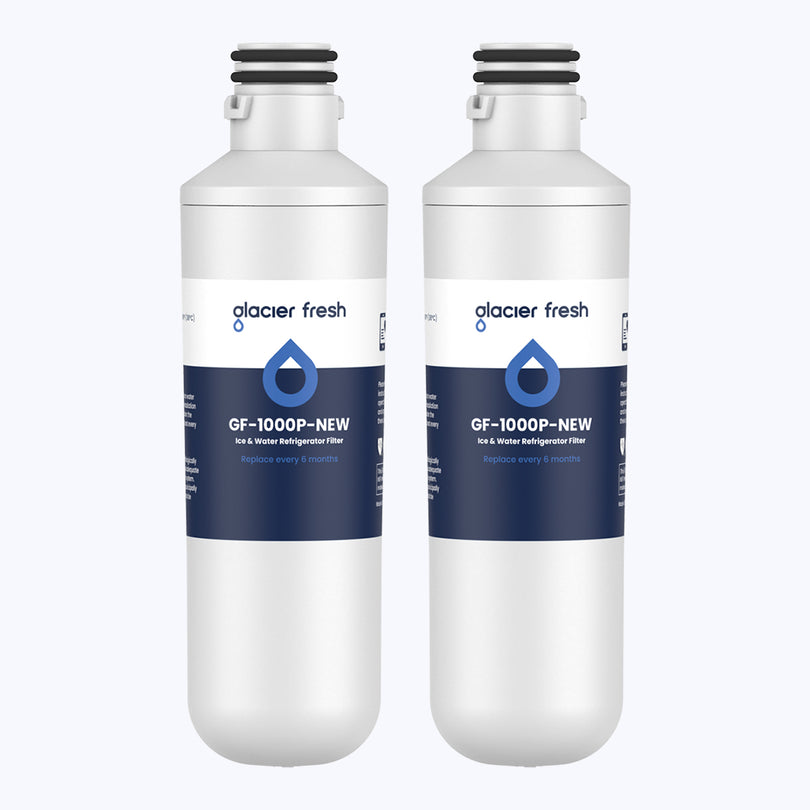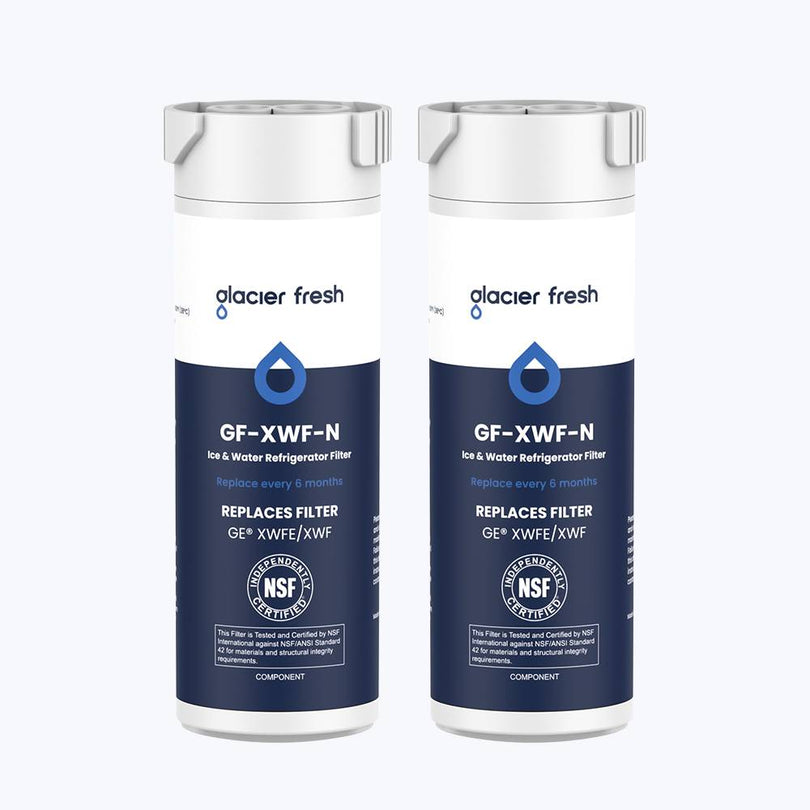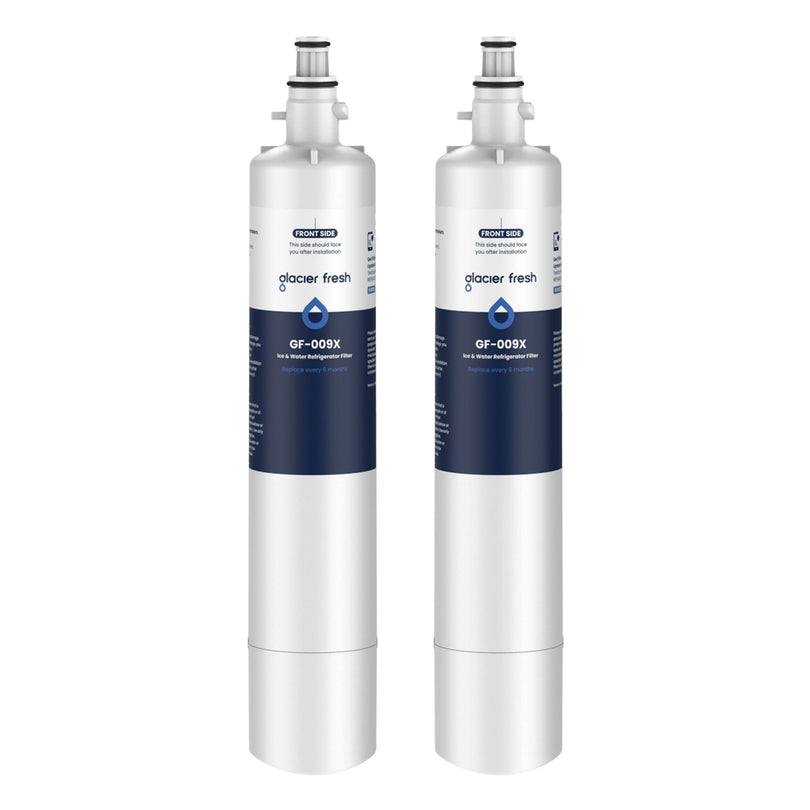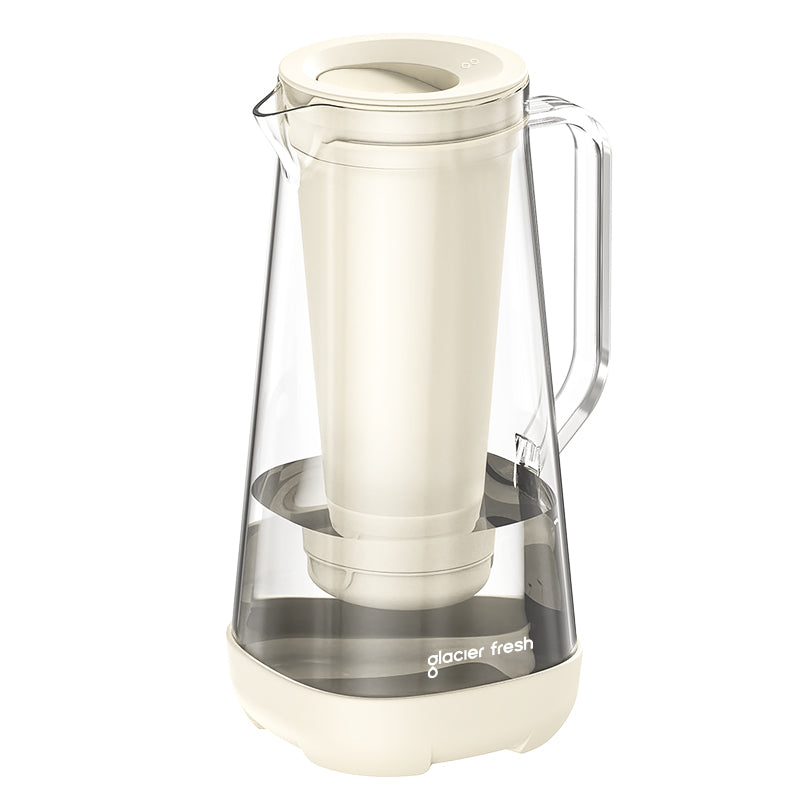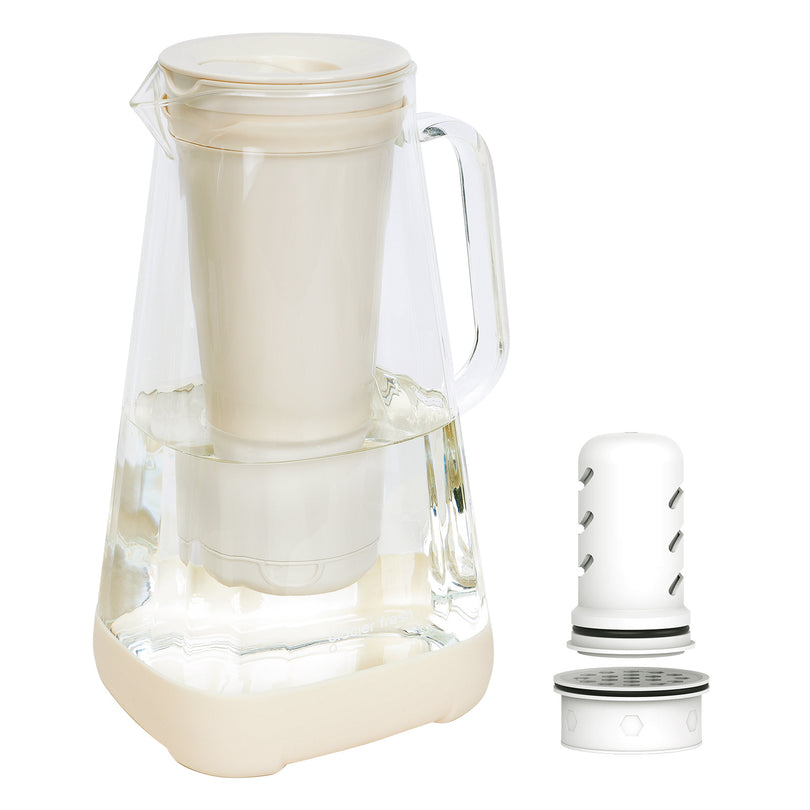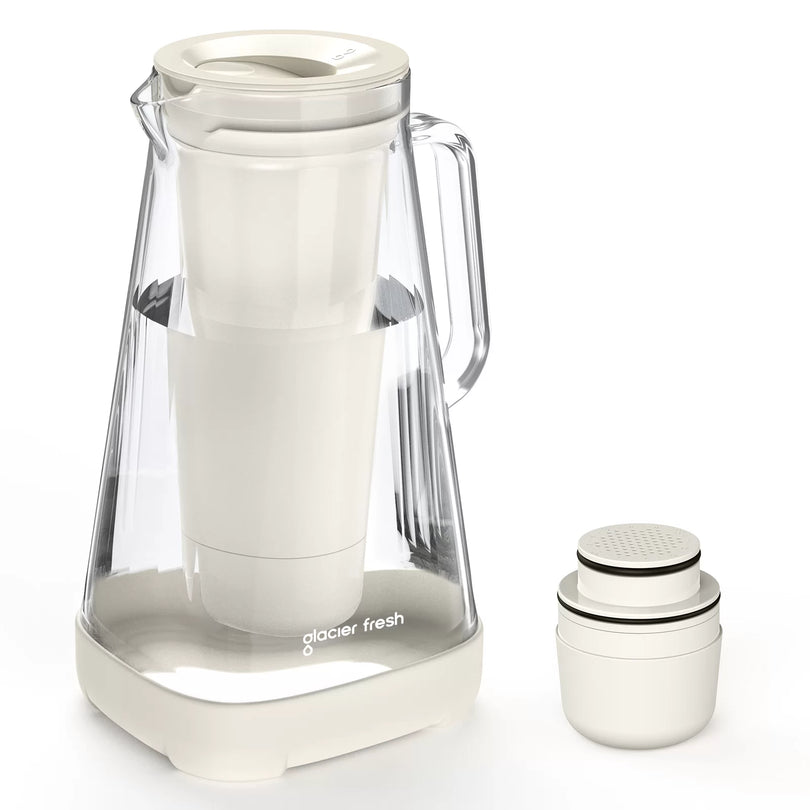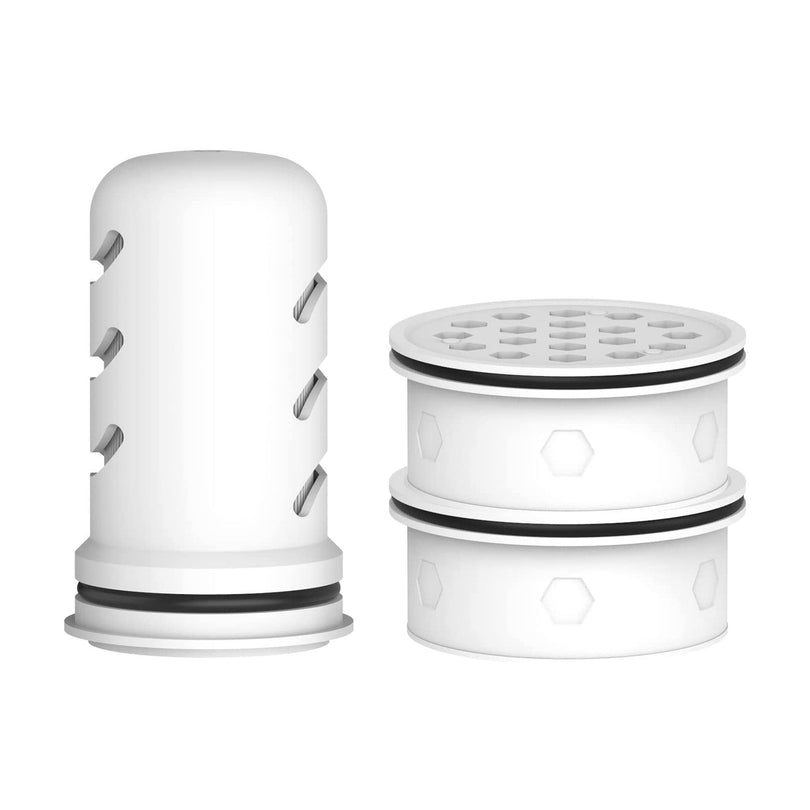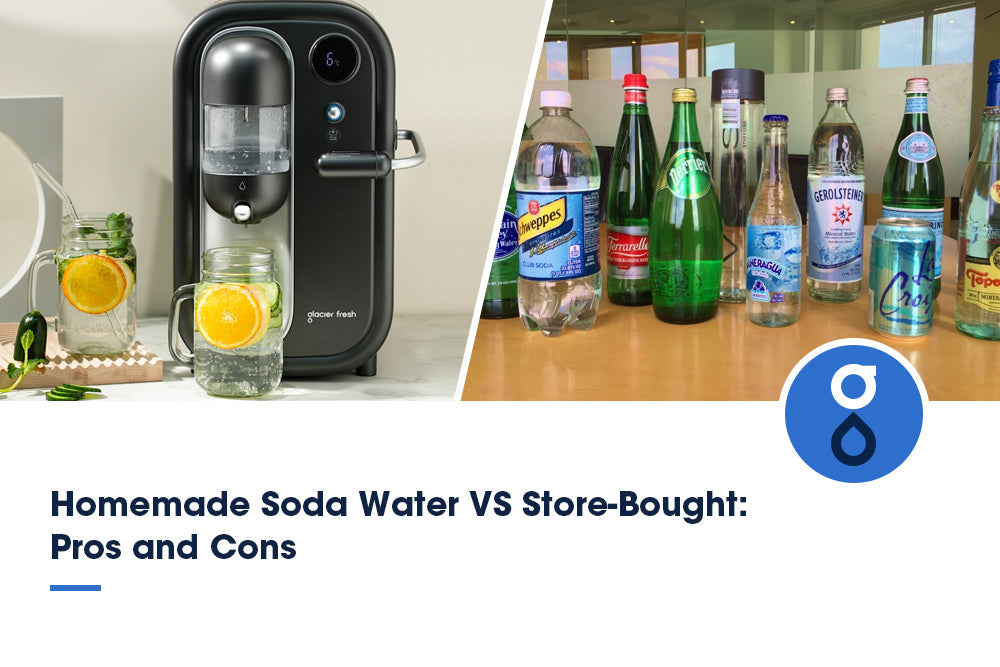Table of Contents:
Nährwert von Sodawasser für die sportliche Leistung
Vorteile von Sodawasser im Sport und Fitness
Mögliche Risiken von Sodawasser im Sport und Fitness
Tipps zum Trinken von Sodawasser für eine bessere sportliche Leistung
FAQs
Abschluss
Suchen Sie nach einer Möglichkeit, Ihre sportliche Leistung und Fitness zu steigern? Sodawasser könnte die Lösung sein. Sie werden überrascht sein, aber dieses kohlensäurehaltige Getränk eignet sich nicht nur zum Mixen von Cocktails. Es bietet Sport- und Fitnessbegeisterten wie Ihnen beeindruckende Vorteile.
Dieser Artikel beleuchtet den Nährwert von Sodawasser, wie es Ihre sportliche Leistung steigern kann, und zeigt Ihnen potenzielle Risiken auf, die Sie beachten sollten. Außerdem geben wir Ihnen Tipps, wie Sie Sodawasser optimal in Ihr Fitnessprogramm integrieren können. Machen Sie sich bereit, eine Flasche Sodawasser zu öffnen und zu entdecken, wie es Ihnen helfen kann, Ihre Fitnessziele zu erreichen.
Nährwert von Sodawasser für die sportliche Leistung
Als Sportler oder Fitness-Enthusiast wissen Sie, wie wichtig es ist, ausreichend Flüssigkeit zu sich zu nehmen. Nun fragen Sie sich vielleicht, wie hoch der Nährwert von Sodawasser im Vergleich zu normalem Wasser ist, insbesondere in Bezug auf Kalorien, Zuckergehalt und künstliche Süßstoffe.
Kalorien in Limonaden im Vergleich zu normalem Wasser

Obwohl Sodawasser im Gegensatz zu normalem Wasser keine Kalorien enthält, ist es wichtig zu beachten, dass aromatisierte oder gesüßte Varianten zweifellos einen hohen Kaloriengehalt aufweisen können. Bei der Diskussion über die Auswirkungen auf Sport und Fitness ist es wichtig, zwischen Sodawasser und zuckerhaltigen Limonaden zu unterscheiden. Ersteres ist kalorienfrei und beeinträchtigt weder Ihren Energiehaushalt noch trägt es zur Gewichtszunahme bei, im Gegensatz zu letzterem.
Was die Hydrierungswirkung betrifft, gleichen sowohl Sodawasser als auch normales Wasser den Flüssigkeitsverlust während des Trainings effektiv aus. Die Kohlensäure im Sodawasser kann jedoch das Sättigungsgefühl verstärken und so das Sättigungsgefühl verbessern. Dies kann dazu beitragen, übermäßiges Essen nach dem Training zu vermeiden, ein häufiges Problem bei Fitnessbegeisterten.
Auch die Stoffwechselreaktion Ihres Körpers auf diese Getränke ist völlig unterschiedlich. Zuckerhaltige Limonaden können den Blutzuckerspiegel in die Höhe treiben, was wiederum zu Insulinspitzen und potenzieller Fetteinlagerung führt. Im Gegensatz dazu hat Sodawasser, da es kalorienfrei ist, nur minimale Auswirkungen auf Ihren Blutzucker- und Insulinspiegel.
Denken Sie daran: Nicht alle Limonaden sind gleich. Wenn Sie Sportler sind oder regelmäßig ins Fitnessstudio gehen, ist Sodawasser anstelle von gesüßten Limonaden die beste Wahl, um hydriert zu bleiben, ohne zusätzliche Kalorien zu sich zu nehmen. Seien Sie sich des Unterschieds bewusst und treffen Sie die intelligentere Wahl für Ihre Gesundheit und Leistungsfähigkeit.
Gramm Zucker in Limonaden im Vergleich zu normalem Wasser
Im Gegensatz zu normalem Wasser, das null Gramm Zucker enthält, enthalten Limonaden in der Regel eine ordentliche Dosis Zucker – ein entscheidender Faktor für sportlich Aktive. Zwar spielt Zucker eine Rolle bei der Flüssigkeitszufuhr, aber es ist wichtig, ein Gleichgewicht zu finden. Zu viel Zucker kann zu zuckerbedingten Entzündungen führen, die Ihre Trainingsleistung und Regeneration beeinträchtigen.
Limonaden, selbst die sogenannten „Diät“-Varianten, enthalten oft viel Zucker und sind daher für Sportler und Sportbegeisterte nicht gerade ideal. Zucker liefert zwar schnell Energie, doch der kurzfristige Energieschub kann zu einem kräftezehrenden Absturz führen. Eine Achterbahnfahrt, die Sie vermeiden möchten, besonders wenn Sie Ihren Körper an seine Grenzen bringen.
Künstliche Süßstoffe in Limonaden und ihre Auswirkungen auf die sportliche Leistung

Sie denken vielleicht, dass künstlich gesüßte Limonaden eine gute Möglichkeit sind, Ihren Blutzuckerspiegel unter Kontrolle zu halten. Sie werden jedoch überrascht sein, dass diese sich auch negativ auf Ihre allgemeine Leistungsfähigkeit und Gesundheit auswirken können. Künstliche Süßstoffe sind zwar kalorienarm, können aber verschiedene Nebenwirkungen haben, die sich nachteilig auf die Leistung eines Sportlers auswirken. Die Nebenwirkungen von Süßstoffen reichen von Kopfschmerzen und Schwindel bis hin zu einer Störung des Darmmikrobioms, das für die Nährstoffaufnahme und die Immunfunktion entscheidend ist. Eine beeinträchtigte Darmgesundheit kann Ihre Leistung direkt beeinträchtigen und es Ihnen erschweren, Ihre sportlichen Ziele zu erreichen.
Die Auswirkungen auf die Leistungsfähigkeit wirken sich auch auf das Energieniveau aus. Während Zucker einen schnellen Energieschub liefert, haben künstliche Süßstoffe nicht denselben Effekt. Sie können zu Lethargie führen und Ihre Ausdauer und Ihr Durchhaltevermögen beeinträchtigen. Die Sicherheit künstlicher Süßstoffe ist ein heiß diskutiertes Thema. Obwohl sie von den Aufsichtsbehörden als sicher eingestuft werden, sind die Langzeitwirkungen noch weitgehend unbekannt.
Daher ist Vorsicht geboten. Anstatt sich während des Trainings auf künstlich gesüßte Getränke zu verlassen, um ausreichend Flüssigkeit und Energie zu tanken, sollten Sie auf natürliche Alternativen wie Wasser, natürliche Fruchtsäfte oder selbstgemachte Sportgetränke zurückgreifen. Diese können genauso erfrischend und weitaus vorteilhafter für Ihre Gesundheit und Leistungsfähigkeit sein.
Vorteile von Sodawasser im Sport und Fitness

Egal, ob Sie ein Profisportler oder ein Fitness-Enthusiast sind, die Einbeziehung von Sodawasser in Ihren Alltag kann eine Reihe von Vorteilen bieten.
Flüssigkeitszufuhr und Elektrolythaushalt
Flüssigkeitszufuhr und Elektrolythaushalt sind entscheidende Faktoren bei intensivem Training. Eine ausreichende Flüssigkeitszufuhr sorgt für optimale Körperfunktionen und beugt durch einen ausgeglichenen Elektrolythaushalt Muskelkrämpfen und Ermüdung vor. Sodawasser kann eine gute Wahl sein, um ausreichend Flüssigkeit zu erhalten und den Elektrolythaushalt wieder aufzufüllen. Die Kohlensäure im Sodawasser fördert die Aufnahme und beschleunigt die Rehydrierung.
Darüber hinaus hilft es, die durch Schweiß verlorenen Mineralsalze wieder aufzufüllen und so die Muskelregeneration zu fördern. Dies kann besonders hilfreich sein, um Ihre Trainingseinheiten zu verlängern und Müdigkeit entgegenzuwirken. Darüber hinaus kann das Sättigungsgefühl, das Sodawasser vermittelt, Ihren Appetit kontrollieren und übermäßiges Essen nach dem Training verhindern.
Verbesserte Verdauung und weniger Blähungen

Fühlen Sie sich aufgebläht oder haben Sie Verdauungsbeschwerden? Ein Glas Sprudelwasser könnte Abhilfe schaffen! Sodawasser kann Ihre Darmgesundheit und Stoffwechselleistung als Sportler oder Sportbegeisterter verbessern. So geht's:
1. Magenbeschwerden : Die Kohlensäure des Sodawassers kann das Völlegefühl verringern und so Magenbeschwerden nach einer schweren Mahlzeit oder dem Training lindern.
2. Darmgesundheit: Es trägt zur Erhaltung eines gesunden Darms bei, indem es die Verdauung anregt.
3. Aufnahmegeschwindigkeit: Sodawasser kann auch die Aufnahme von Nährstoffen in Ihrem Körper beschleunigen, was für die Erholung nach dem Training entscheidend ist.
4. Stoffwechseleffizienz: Eine verbesserte Verdauung kann letztendlich Ihre Stoffwechseleffizienz steigern und Ihnen die Energie liefern, die Sie für Höchstleistungen benötigen.
Verbesserte Leistung und Ausdauer
Sie werden staunen, wie ein prickelndes Erfrischungsgetränk Ihre Ausdauer steigert und Ihnen die nötige Ausdauer für lange, anstrengende Trainingseinheiten verleiht. Durch die Kohlensäurewirkung kann Sodawasser Ihre Leistung steigern und Sie länger durchhalten lassen. Die Kohlensäure im Getränk kann Muskelermüdung verzögern und Ihre Fähigkeit steigern, härter und länger zu trainieren.
Darüber hinaus kann der Koffeingehalt mancher Sodawasser für einen zusätzlichen Energieschub sorgen. Nach einem anstrengenden Training kann Sodawasser die Muskelregeneration unterstützen und dabei helfen, verlorene Elektrolyte wieder aufzufüllen. Es kann auch zur Knochengesundheit und zum Sättigungsgefühl beitragen. Ein stärkeres Sättigungsgefühl kann übermäßiges Essen nach dem Training verhindern.
Gewichtskontrolle und Kalorienkontrolle

Kohlensäurehaltige Getränke können einen wichtigen Beitrag zur Gewichtskontrolle leisten und lästige Kalorien vermeiden. Die Kohlensäure im Sodawasser kann ein Sättigungsgefühl erzeugen, den Appetit unterdrücken und Ihnen beim Abnehmen helfen.
Sodawasser kann außerdem die Knochengesundheit und Muskelregeneration fördern und sogar den Blutdruck regulieren. Außerdem kurbelt es den Stoffwechsel an und ermöglicht so eine effizientere Kalorienverbrennung. Hier ein Überblick über die möglichen Vorteile:

Natürliche und erfrischende Alternative
Wenn es um erfrischende Alternativen geht, gibt es nichts Besseres als die prickelnden Kohlensäuregetränke, die Sie erfrischen und zufriedenstellen. Insbesondere Sodawasser ist eine natürliche und erfrischende Alternative zu zuckerhaltigen Getränken und kann Ihrer Flüssigkeitszufuhr eine einzigartige, spritzige Note verleihen. Zahlreiche Limonadenalternativen und Geschmacksrichtungen verwöhnen Ihren Gaumen und sorgen gleichzeitig für ausreichend Flüssigkeitszufuhr. Von fruchtigen Aufgüssen bis hin zu Kräutermischungen sind die Möglichkeiten endlos.
Außerdem tust du etwas Gutes für die Umwelt, indem du weniger Getränke aus Plastikflaschen trinkst. Im Kostenvergleich schneidet Sodawasser oft besser ab. Dank der praktischen Verpackung kannst du es problemlos ins Fitnessstudio, zur Arbeit oder wohin auch immer mitnehmen.
Mögliche Risiken von Sodawasser im Sport und Fitness
Obwohl Sodawasser beim Sport und bei der Fitness von Vorteil sein kann, sollten Sie auch die potenziellen Risiken kennen.
Zu viel Kohlensäure kann zu Beschwerden führen
Zu viel kohlensäurehaltige Getränke können zu Blähungen und Unwohlsein führen, wie ein aufgeblasener Ballon, der kurz vor dem Platzen steht. Das könnte Ihr Fitnessprogramm verlangsamen. Das Kohlensäuregefühl kann bei anstrengenden Trainingseinheiten eher hinderlich als hilfreich sein. Hier sind einige mögliche Nachteile von übermäßiger Kohlensäure:
- Linderung von Blähungen: Überschüssiges Gas kann zu Blähungen führen und Ihre Leistung und Ihr Wohlbefinden während des Trainings beeinträchtigen.
- Auswirkungen auf die Verdauung: Zu viel Sodawasser kann Verdauungsprobleme wie Sodbrennen oder Magenverstimmungen auslösen. Diese Probleme müssen durch die Aufrechterhaltung eines regelmäßigen Trainingsprogramms besser bewältigt werden.
- Auswirkungen auf das Sättigungsgefühl: Das Völlegefühl kann Ihren Appetit verringern und möglicherweise zu Nährstoffmangel führen, wenn Sie nicht aufpassen.
- Nachteile der Kohlensäure: Die Kohlensäure kann ein Völlegefühl und Unwohlsein hervorrufen und möglicherweise Ihre Trainingsleistung beeinträchtigen.
Denken Sie daran: Beim Genuss Ihres Sodawassers ist Mäßigung der Schlüssel.
Eine hohe Aufnahme kann zu Zahnschäden oder Karies führen
Sie merken es vielleicht nicht, aber der Konsum Ihres Lieblings-Limonadengetränks kann Ihre strahlend weißen Zähne schädigen. Ein hoher Konsum von Sodawasser kann zu Zahnschäden oder Karies führen und Ihre Mundgesundheit erheblich beeinträchtigen. Die säurebedingte Erosion durch kohlensäurehaltige Getränke kann zu Zahnempfindlichkeit und Kariesbehandlungen führen.

Kein Ersatz für normales Wasser oder gesunde Alternativen
Obwohl Sodawasser eine angenehme Alternative zu normalem Wasser sein und sogar Ihren Durst löschen kann, sollte beachtet werden, dass es möglicherweise zu Zahnschäden oder Karies führen kann. Lassen Sie uns nun einen weiteren wichtigen Punkt näher betrachten. Lassen Sie sich nicht von Trinkmythen täuschen, die behaupten, Sodawasser könne normales Wasser oder andere gesunde Alternativen ersetzen, wenn es um eine gesunde Flüssigkeitszufuhr geht.
Normales Wasser bietet zahlreiche Vorteile, mit denen Sodawasser einfach nicht mithalten kann. Es bekämpft effektiv das Risiko einer Dehydration und ist die natürlichste Möglichkeit, den Durst zu löschen. Denken Sie daran: Sodawasser kann zwar Teil einer ausgewogenen Flüssigkeitszufuhr sein, sollte aber niemals die einzige Methode zur Flüssigkeitszufuhr sein. Informieren Sie sich, treffen Sie kluge Entscheidungen und achten Sie auf eine ausgewogene Flüssigkeitszufuhr für optimale Fitness und sportliche Leistung.
Tipps zum Trinken von Sodawasser für eine bessere sportliche Leistung
Ein kaltes Glas Sodawasser nach dem Training löscht nicht nur Ihren Durst, sondern hilft auch, verlorene Elektrolyte zu ersetzen und gibt Ihnen so die Energie für den Rest des Tages. Der richtige Zeitpunkt für den Genuss ist entscheidend: Trinken Sie es direkt nach dem Training, um den Körper zu regenerieren und die Regeneration zu unterstützen. Achten Sie jedoch auf die Auswirkungen der Kohlensäure. Sprudelndes Wasser kann zwar erfrischend sein, zu viel davon kann jedoch Magenbeschwerden verursachen, insbesondere wenn es schnell getrunken wird.

Wenn Sie kein Sodawasser mögen oder Bedenken hinsichtlich der Kohlensäure haben, sollten Sie Alternativen zu Limonaden in Betracht ziehen. Kokoswasser ist beispielsweise eine natürliche und nahrhafte Alternative, die die Regeneration fördert. Es enthält viel Kalium, einen wichtigen Elektrolyten, und kann die Muskelkontraktion und die Herzgesundheit unterstützen. Glauben Sie nicht den Mythen, dass Sodawasser und andere kohlensäurehaltige Getränke nicht so effektiv hydratisieren wie stilles Wasser.
Studien zeigen, dass alle Flüssigkeiten, auch Sodawasser, Ihren Flüssigkeitshaushalt beeinflussen. Denken Sie daran: Eine ausreichende Flüssigkeitszufuhr ist für optimale sportliche Leistungen unerlässlich. Integrieren Sie Sodawasser in Ihr Trainingsprogramm und profitieren Sie von den Vorteilen und dem erfrischenden Geschmack.
FAQs
Welchen Einfluss hat die Temperatur von Sodawasser auf seine Wirksamkeit beim Training?
Sodawasser von Sodaology verbessert die Temperaturaufnahme und steigert so Ihre Flüssigkeitszufuhr. Umgekehrt kann warmes Soda die Thermoregulation und Stoffwechselreaktionen während des Trainings unterstützen. Daher wirkt sich die Temperatur Ihres Sodawassers unterschiedlich auf Ihre Trainingseffektivität aus.
Kann der Konsum von Sodawasser die Muskelregeneration nach dem Training unterstützen?
Ja, Sodawasser kann die Muskelregeneration nach dem Training unterstützen. Seine hydratisierende Wirkung beschleunigt die Regeneration, reduziert Milchsäure, lindert Muskelkater und hält den Elektrolythaushalt aufrecht. Es ist ein ausgezeichnetes Getränk nach dem Training.
Gibt es Unterschiede zwischen der Wirkung von aromatisiertem und nicht aromatisiertem Sodawasser auf die sportliche Leistung?
Der Geschmack beeinflusst weder die hydratisierende Wirkung noch die Nährstoffaufnahme von Sodawasser. Geschmackspräferenzen können jedoch den Konsum beeinflussen. Vorsicht vor aromatisierten Varianten mit hohem Zuckergehalt; diese könnten Ihre sportliche Leistung beeinträchtigen.
Abschluss
Sodawasser kann eine wertvolle Ergänzung für Ihr Fitnessprogramm sein. Es ist reich an Elektrolyten und Mineralien und unterstützt die Flüssigkeitszufuhr sowie die Muskelfunktion. Aber denken Sie daran: Mäßigung ist entscheidend, um potenzielle Risiken zu vermeiden. Integrieren Sie also etwas Sodawasser in Ihren Alltag und erleben Sie, wie es Ihre Leistung steigert! Folgen Sie Glacier Fresh für weitere Tipps, wie Sie Ihre Flüssigkeitszufuhr angenehmer gestalten können.

